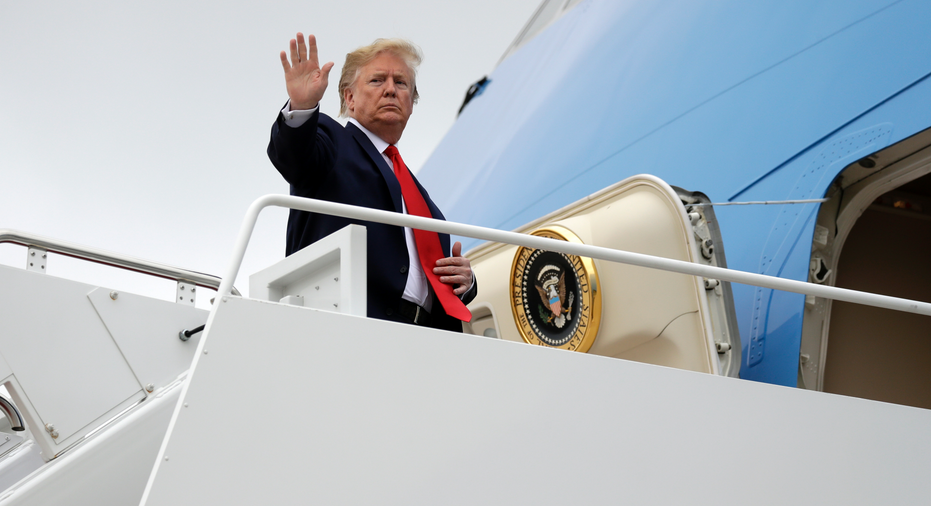On Trump's tax returns, many unanswered questions

WASHINGTON – President Donald Trump is prone to upending tradition and shattering presidential norms. His refusal to follow other recent presidents in releasing his tax returns to the public — and his fight against a demand by House Democrats for six years' worth of his personal and business returns — is but one battle in a broader war against oversight demands by congressional Democrats.
The fight over Ways and Means Committee Chairman Richard Neal's demand for the returns is about to head to federal court, but an incomplete picture of Trump's taxes and finances has emerged from media investigations.
Trump's tax returns hold the promise of information about his business entanglements, relationships with foreign creditors and governments, whether he has been truthful in reporting the value of his assets, and whether he got a personal windfall from the 2017 tax bill.
Here's where things stand:
___
WHAT DO WE KNOW?
Thanks to reporting this week from The New York Times, which was given copies of summaries of Trump's tax returns from 1985 to 1994, we know that Trump, a developer and real estate investor in Manhattan, suffered enormous business losses over that period. Those losses exceeded $1.1 billion, according to the Times, from bad investments such as now-defunct Eastern Air Lines and the Trump Taj Mahal hotel and casino in Atlantic City.
Taking to Twitter Wednesday, Trump seemed to confirm the gist of the Times investigation.
"You always wanted to show losses for tax purposes....almost all real estate developers did — and often re-negotiate with banks, it was sport," Trump tweeted. "Additionally, the very old information put out is a highly inaccurate Fake News hit job!"
Earlier reporting by the Times about the Trump family finances found that Trump "participated in dubious tax schemes during the 1990s, including instances of outright fraud" to reduce taxes paid as his father's holdings were transferred to him and his siblings.
Trump has also been a party in numerous lawsuits over the years that have provided many glimpses into his business dealings. He has frequently skated close to and over ethical lines, critics charge. His tax lawyer testified that Trump's 1984 tax return was fraudulent.
___
WHAT DON'T WE KNOW?
A lot. This week's Times report relies on summaries of Trump's returns but lacks details to answer basic, obvious questions.
For starters, Trump's critics say he has long exaggerated his wealth, and the returns promise answers on that front. They would also reveal how much he has paid more recently and what techniques he uses to avoid taxes.
Much of what is known about Trump's taxes dates to the 1980s and 1990s, when Trump was a casino magnate and a more active developer. His businesses have changed since then. Trump's Washington D.C. hotel on Pennsylvania Ave blocks from the White House hadn't been developed yet, for instance. He has also shifted toward licensing deals, where a developer essentially pays the Trump Organization to use his name.
A key period for investigators could be recent years when Trump was running for president and whether that affected his businesses. Ways and Means Chairman Neal has requested Trump's returns from 2013 to 2018.
___
WHAT ARE DEMOCRATS LOOKING FOR?
Plenty. Trump's former attorney and "fixer" Michael Cohen testified before Congress that Trump would falsify financial records when seeking loans or filing his taxes. Trump's returns would help lawmakers sort out if this is true.
Then there's the question of how Trump financed his businesses. How much foreign money is involved? Who does he owe money to and what is their business before the U.S. government?
"There are a lot of dots that are out there not yet connected," said Rep. Gerry Connolly, D-Va.
"The situation with Donald Trump and the myriad ways in which he could potentially be compromised — specifically with who is holding his enormous debt ... these are all absolutely major reasons why it is legitimate to see the tax returns," said Rep. Brendan Boyle, D-Pa.
The Democrats have asked the IRS to provide Trump's personal and business returns for 2013 through 2018.



















